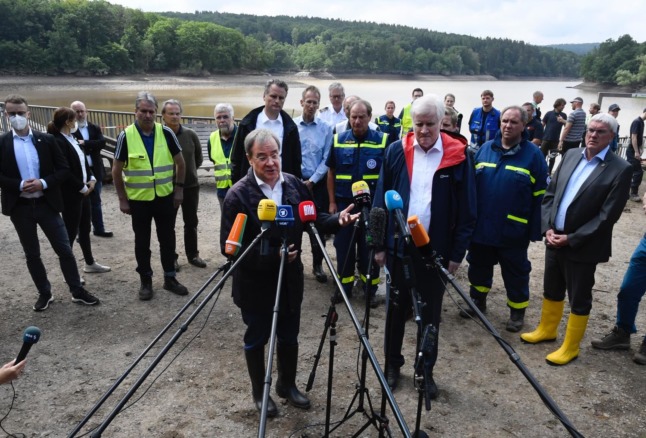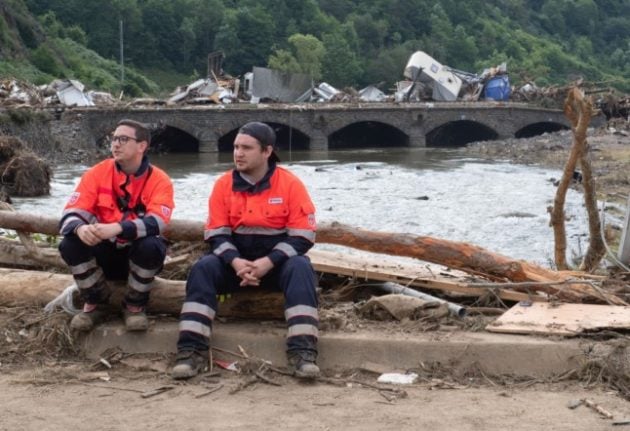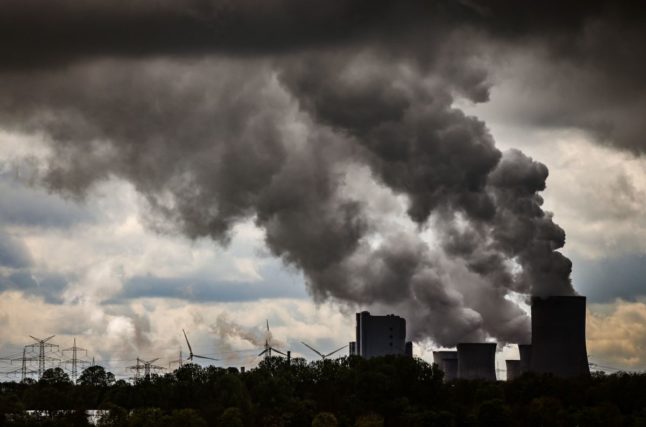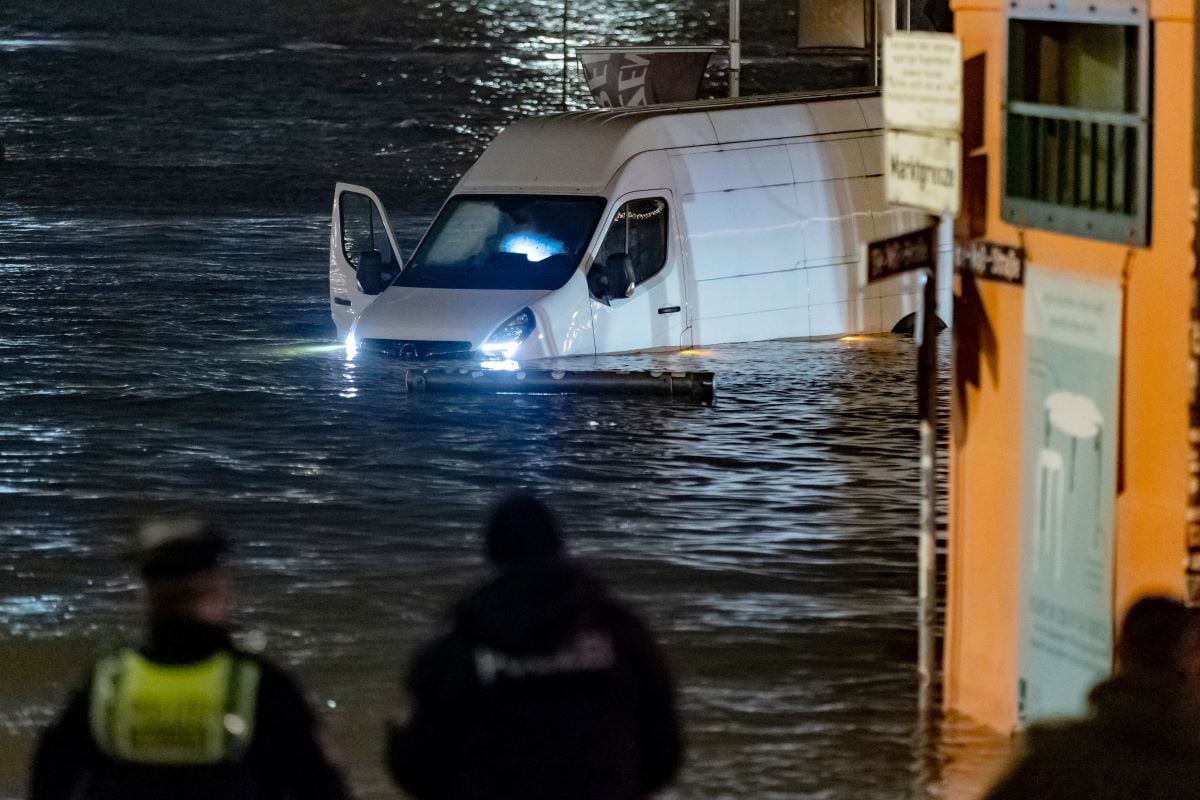The west of the country was deluged over two days last week, sending torrents of water rushing down streets, sweeping away trees, cars and bridges and destroying swathes of housing.
At least 31 people also died in Belgium in the floods, and later torrential rain caused havoc in southern Germany and several neighbouring countries.
Many victims in Germany were found dead in sodden cellars after attempting to retrieve valuables, while others were swept away by the sheer force of the water.
A total of 117 people are now confirmed to have died in Rhineland-Palatinate state, with 47 victims in neighbouring North Rhine-Westphalia and one in Bavaria.
Government spokeswoman Martina Fietz said the national warning system and mobile phone app Nina had “worked” but admitted that “our experiences with this disaster show that we need to do more and better”.
Armin Schuster, president of the government’s civil protection agency (BKK), called on German radio for sirens to be reinstated as part of the country’s disaster warnings system.
READ ALSO:
- German flood disaster – what went wrong?
- Flood death toll rises to 165 as search for missing people continues
‘Completely inconceivable’
Although meteorological services had forecast torrential rain and flash floods, many residents said they were caught off-guard by rapidly rising waters.
The floods caused sweeping power cuts and knocked down telecommunication antennas, preventing residents from receiving warnings in time.
Under Germany’s federal system, it is up to the 16 regional states to organise responses to flood alerts and coordinate efforts with the civil protection office and the fire brigade.
Annalena Baerbock, the Green party candidate to replace Angela Merkel as chancellor after elections on September 26, on Monday called for a more
centralised approach.
“In my view, the federal government must play a much stronger coordinating role,” she told the ARD broadcaster.
But during a visit to the flood-ravaged town of Euskirchen in North Rhine-Westphalia, Interior Minister Horst Seehofer said it would be “completely inconceivable that such a disaster could be dealt with centrally from any one place”.
“I believe that we are still in the right position in Germany with our organisation of civil protection and disaster management,” he said.

Visiting the flood zone in Rhineland-Palatinate on Sunday, Merkel had said lessons should be learnt but cautioned against overly high expectations.
“Of course we ask ourselves what can be done better,” she said. “But in some situations, things happen so quickly that you can’t fully escape the force of nature.”
‘Unbelievable tragedy’
The disaster has catapulted climate change to the top of the agenda in Germany, ahead of September’s polls that will mark the end of Merkel’s 16 years in power.
READ ALSO: The aftermath of Germany’s catastrophic floods
Experts say that because a warmer atmosphere holds more water, climate change increases the risk and intensity of flooding.
Emergency workers have been out in force to assess damaged buildings, clear debris and restore gas, electricity and telephone services.
In the German town of Bad Neuenahr-Ahrweiler, the search for bodies also continued on Monday amid mud-covered streets piled high with debris.
“They are still searching. We will find dead people for sure,” a resident of the town told AFP, while another said he had witnessed a body being carried away on a cart by the Bundeswehr.
Seehofer spoke of an “unbelievable tragedy” and said he had “never experienced anything like it in my life”.
Now was “the time for help and solidarity”, he said. “We have experienced once again that in times like these, first and foremost, people stand firmly together.”
By Jean-Philippe LACOUR with Femke COLBORNE in Berlin




 Please whitelist us to continue reading.
Please whitelist us to continue reading.
Member comments